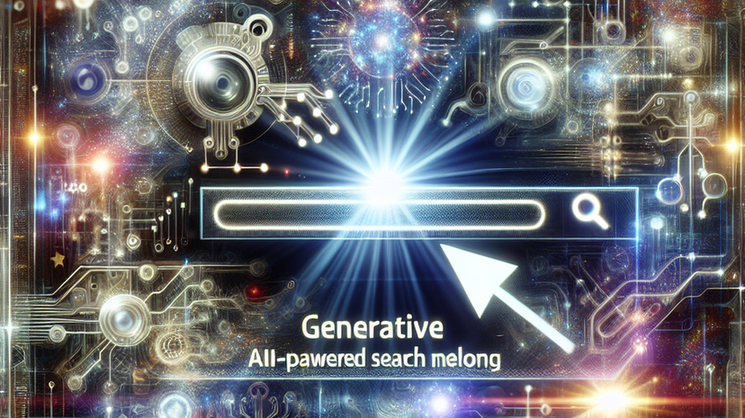The marketing industry is on the edge of a technological revolution with the emergence of Generative AI-powered search. According to a recent report by Gartner, this groundbreaking technology is set to reshape the way marketers drive sales through organic search. As Generative AI gains momentum, brands must adapt their SEO strategies to remain competitive and take advantage of the changing search landscape.
By 2028, organic search traffic is expected to decline significantly as consumers adopt Generative AI-powered search. This shift requires marketers to focus on keeping users engaged once they arrive on their websites. Targeted ads across platforms like social media and email will be crucial in capturing and maintaining consumer attention.
While Generative AI is growing, SEO indexing remains a top priority for brands. SEO will be one of the most effective ways for brands to connect with consumers, not only on Google but also on platforms like YouTube and Amazon. Brands that fail to index correctly may miss valuable opportunities as users visit fewer websites per search.
Consumers are ready for AI-enhanced search and trust the accuracy and relevance of Generative AI-powered search results. An impressive 70% of consumers already trust these results. This presents a great opportunity for marketers to leverage this trust and drive conversions through targeted advertising and engaging content.
To succeed in this new era of search, Chief Marketing Officers (CMOs) should consider diversifying their strategies beyond traditional SEO. Exploring other channels, like voice search and visual search, can help brands capture a wider audience and adapt to changing consumer behaviors. Additionally, content creation remains crucial but must align with user intent rather than relying solely on metadata.
Google has already taken steps towards embracing Generative AI with the introduction of Search Labs. This new AI-powered search experience aims to provide users with more accurate and relevant search results. Brands that want to stay ahead should closely monitor these developments and adjust their SEO strategies accordingly.
Not all brands have mastered successful SEO, especially with the increasing focus on relevant content creation at scale. Brands must ensure human intervention to maintain content relevance. Additionally, the rise of zero-click searches, where users get answers without clicking on a page, may further impact SEO tactics. Marketing leaders must be prepared for upcoming challenges and remain open to continuous learning in this ever-changing landscape.
In conclusion, the rise of Generative AI-powered search will have significant implications for marketers. With the projected decline in organic search traffic and consumers’ trust in Generative AI-backed search results, brands must prioritize SEO indexing while diversifying their strategies. Adapting to user intent, leveraging targeted ads, and staying updated with industry developments will be key for marketers to successfully navigate this new era of search. By embracing the opportunities presented by Generative AI, brands can maintain their relevance and drive sales in the evolving digital landscape. Exciting times lie ahead for marketers as they harness the power of Generative AI to propel their strategies to new heights.











